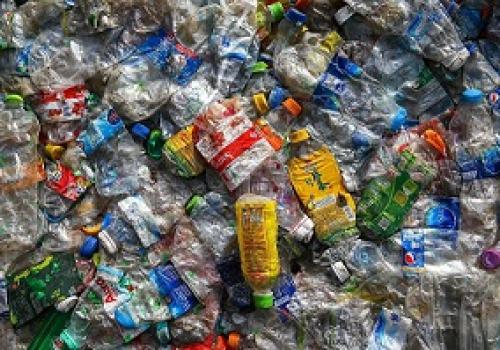The Secretariat of the Southern African Development Community (SADC) has called on SADC Member States to improve their waste management systems in order to address plastic pollution as SADC joins the international community to commemorate the 2018 World Environment Day under the theme Beat Plastic Pollution.
On 5th June every year, the international community under the leadership of the United Nations Environment Programme (UNEP), commemorates the World Environment Day, a day designated by the United Nations in 1974 to encourage worldwide awareness and action for the protection of the environment. The 2018 theme, Beat Plastic Pollution is designed to advocate for a clean, protected environment again plastic pollution.
In a statement issued in commemoration of the 2018 World Environment Day, the SADC Secretariat noted that the region is characterised by poor waste management practices, in particular, widespread dumping of waste in uncontrolled dump sites and water bodies which must be controlled.
The SADC Secretariat says the impacts of plastic waste threaten both human health and economic growth of the region. The statement says plastic waste contributes to public health risks by creating breeding grounds for disease vectors and contributing toxic materials and pathogenic organism to the environment.
The Secretariat also cited the unpleasant odour and unattractive appearance of piles of uncollected plastic waste along streets and in fields, forests and other natural areas, as a factor to deter tourists from being attracted to some parts of country and discourage business developers, leading to loss of revenue and contributing to the slow pace of economic growth.
In the statement, the SADC Secretariat noted that a number of Member States have outlawed conventional plastic bags, allowing only the use and production of "biodegradable" bags, as part of the effort to reduce plastic pollution. In this regard, the Secretariat commended Member States that have introduced a plastic policy whereby consumers buy a plastic bag or re-use old ones, saying such a practice needs to be adopted across all Member States in order to beat plastic pollution.
The SADC Secretariat further proposed solutions to curb plastic pollution including measures such as application of reusable objects like refillable containers for food and drinks. In addition, the SADC Secretariat advocated for the use of alternative packaging that can be produced and reused, referred to as "produce—use—re-use" pattern as opposed to those that can only be produced and disposed, referred to as "produce—use—dispose" packaging materials.
In his message on commemoration of the 2018 World Environment Day, the United Nations Secretary-General António Guterres weighed in and urged the international community to reject single-use plastic.
"Refuse what you can't re-use. Together, we can chart a path to a cleaner, greener world," said the UN Secretary General in a statement to commemorate the 2018 World Environment Day.
According to recent studies, the scale of global plastic pollution is daunting. Studies by the United Nations Environment Programme (UNEP) show that since the 1950s, the production of plastic has outpaced that of almost every other material. Plastic packaging accounts for about half of the plastic waste in the world. The world's ability to cope with plastic waste is already overwhelmed.
The study states that only nine per cent (9%) of the nine (9) billion tonnes of plastic the world has ever produced has been recycled. The study further shows that most global plastic production is rising rapidly. By 2030 the world may produce 619 million tonnes of plastic every year.

